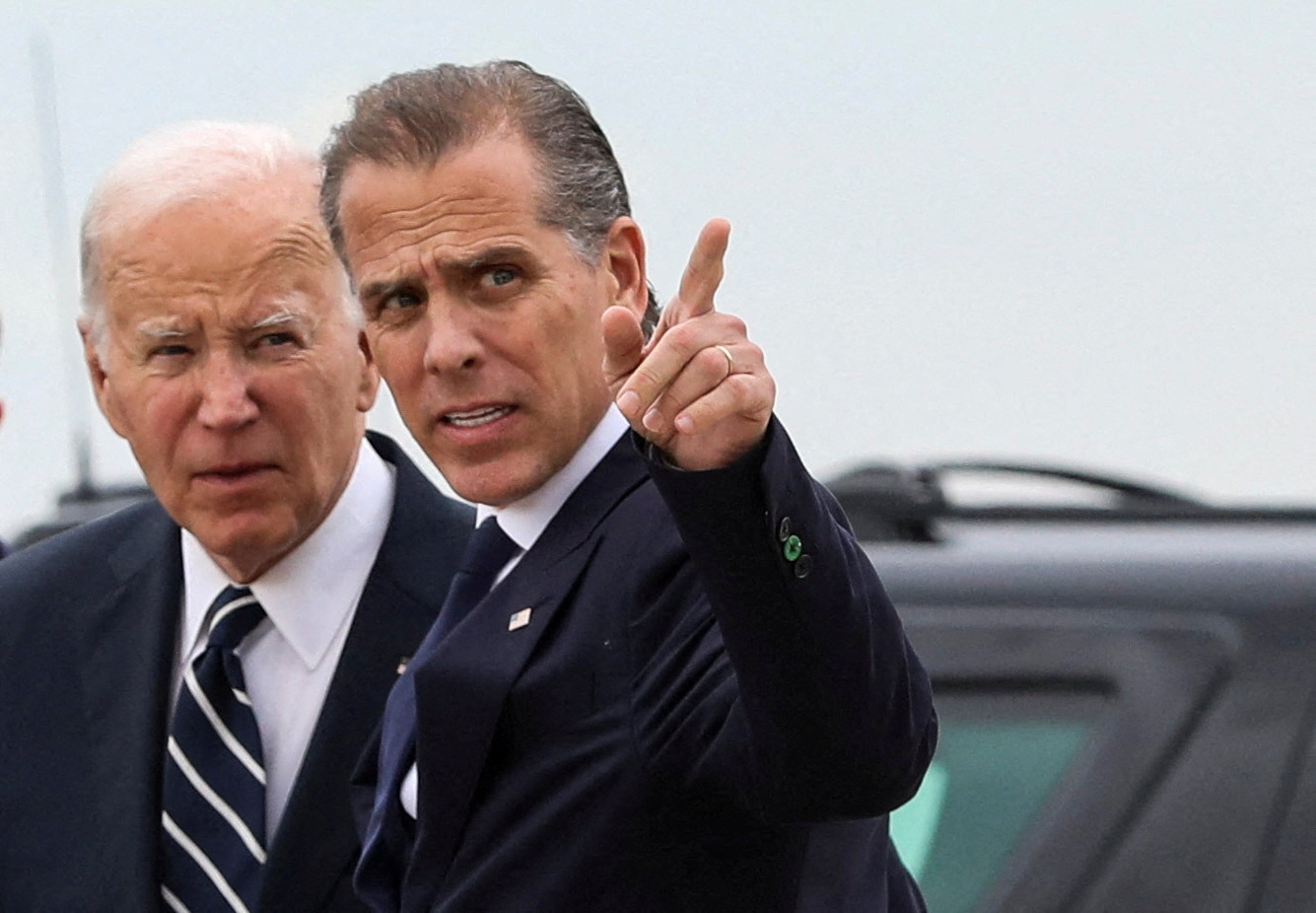And reflects on the US president’s role as a father
Last week President Joe Biden pardoned his son Hunter for offences of failing to disclose he was a drug addict to obtain a gun, tax evasion and any federal offences he may have committed since 2014.
Biden had previously vowed he would not pardon his son but justified his purported change of mind with the claim there had been a miscarriage of justice because hisson was unfairly singled out for prosecution.
To understand why Biden claimed a miscarriage of justice, one needs to appreciate that not all criminal offences are prosecuted in US. Failing to tick all the boxes truthfully in an application form to obtain a gun is not normally prosecuted unless the gun is misused, and tax evasion is forgiven once tax is paid – the policy of the revenue department is to collect tax not punish taxpayers.
Hunter was found guilty of the gun offences by a jury last June, and pleaded guilty to the tax offences last September. Biden had insisted time and again that he would not pardon his son, but it seems his insistence was politically expedient to show he followed the law even against his own son.
It looks as though he always intended to pardon his son given the miscarriage of justice he felt Hunter had suffered and his family’s tragic background – his first wife and daughter died in a car accident in 1972 and his eldest son died of cancer in 2015.
After withdrawing his candidacy in favour of Vice President Kamala Harris and after Donald Trump won the presidency and Biden’s role as president began to fade, his role as a father came to the fore with a vengeance.
The mood at the Biden household last Thanksgiving weekend must have been overwhelmingly to pardon Hunter and make it long and wide enough to prevent Trump and his new Department of Justice from taking revenge on Hunter for the sins of the father – real or imagined.
So Biden decided to do what most fathers would in similar circumstances – save his son from many years in prison. He issued him a full and unconditional pardon not just for his current convictions, but for any federal crimes he may have committed between December 1, 2014 and December 1, 2024.
A father who was prepared to let his son suffer in prison was the Soviet leader Joseph Stalin, whose son was captured by the Germans in 1941. They offered to exchange him with the German field marshal who surrendered at Stalingrad in 1943 but Stalin refused. The story is also interesting because it is not clear whether either of them wanted to be exchanged. Stalin’s son because of pride and the field marshal because he faced probable execution if returned.
The US president has the constitutional right to pardon any federal offence against the US though not an offence against a state. A full unconditional pardon means the recipient cannot be punished or suffer any disqualification for pardoned crimes. As regards pardoning family members, Bill Clinton pardoned his half brother and Donald Trump pardoned his son-in-law’s father and some of his political friends and allies.
Most US presidents have used the power to pardon, but no pattern emerged on how it should be exercised. There are, however, three limitations on the grant of pardons: it only covers federal crimes; there needs to be an imputation of guilt; and a pardon cannot be granted in cases of impeachment.
The most famous pardon was the one granted by President Gerald Ford to Richard Nixon after Nixon resigned the presidency in August 1974. The Supreme Court had ordered Nixon to disclose the White House tapes that proved his involvement in the Watergate cover-up and he resigned in expectation of a pardon.
Ford pardoned Nixon in September 1974and remained president until he lost to Jimmy Carter in 1976 – still with us aged 100. Ford lost because it was thought he struck a corrupt bargain while he was vice president to grant Nixon a pardon to become president.
The most cynical use of the pardon was by President Woodrow Wilson in the case of a newspaper editor who pleaded the 5th amendment not to answer questions about a source of information within Wilson’s administration on the ground it would incriminate him. Whereupon Wilson granted him a pardon to preclude him from claiming the 5th since as a recipient of a pardon he could not be prosecuted and self-incrimination could not arise – or so the president thought.
The editor refused to accept the pardon and refused to answer questions, and the case reached the US Supreme Court on whether a pardon needs to be accepted to have legal effect. The court held that a pardon does indeed need to be accepted by the recipient to have legal effect. It was thought that the case also decides that as a pardon carries with it an imputation of guilt, its acceptance is a confession of guilt, but that is not the law. Many pardons have been accepted and not taken as admissions of guilt
In Cyprus the president has the power to remit, suspend or commute any sentence passed by a court in the RoC on the recommendation of the attorney-general. The president had the exclusive right to exercise the prerogative of mercy for those condemned to death but that fell away when capital punishment was abolished for murder in 1983 and for all offences in 1992.
Alper Ali Riza is a king’s counsel in the UK and a former part time judge







Click here to change your cookie preferences